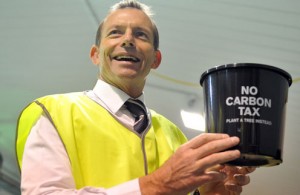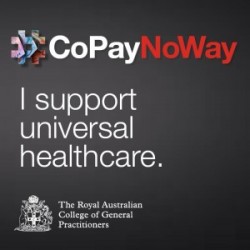If Only Julia Had Introduced A Carbon “Price Signal”, It Would Have All Been OK!

TONY ABBOTT: “This is an important reform. It is important to have some modest price signals in the system.”
PETER DUTTON: “…we will make Medicare sustainable, we will get money into the Medical Research Future Fund and we will make sure that we have this sustainability which will include a price signal.”
Now I could probably find another dozen quotes about the current government’s determination for a price signal, but you get the general idea from those above.
Price Signal. That’s the funny thing about words, while “West-Side Story” let me know that when you said Maria loudly there was music playing, but when you said it soft(ly), it was almost like praying, I suddenly realised earlier today, that I didn’t really know what a price signal was. Yes, I know what a price is, and I know what a signal is, but what does it mean when you put them together? When they say it softly there’s music playing, but it doesn’t sound like any song I know the words to. Similarly, when they say it loudly, it’s almost like braying.
So, because I’m a man who likes to research but – like Greg Hunt – doesn’t have time to read more than a few words, I looked it up on Wikipedia:
A price signal is information conveyed, to consumers and producers, via the price charged for a product or service, thus providing a signal to increase supply and/or decrease demand for the priced item.
So there you have it. The $7 co-payment – not a tax, because the Liberals don’t believe in taxation – and it’s bastard child the $5 reduction in doctor rebates is just something to provide information to increase and/or decrease demand for medical services.
Mm, I’m trying to get my head around that. So does that mean if the price signal shows more people are using the doctor then they’ll increase the supply? Or reduce the demand? Or both?
Perhaps some interviewer would like to ask our Health Minister, Mr Whatisname to explain how the price signal aspect of the non-co-payment will work in practice. I’d be interested to hear his answer.
And I can’t help but think that Julia Gillard should have called the Carbon “Tax” a Carbon Price Signal. Oh wait, I seem to remember the rest of that quote that the Liberals were so fond of.
“’There will be no carbon tax under a government I lead, but let me be clear: I will be putting a price on carbon and I will move to an emissions trading scheme.’’
Yep, if only she’d said she’d be putting a “price signal” on carbon, the Liberals would’ve had no problem with it.
Free PRICE SYSTEM
Main article: Free price systemFor example, in a free price system, rising prices may indicate a decrease of supply or an increase in demand. Regardless of the underlying reason—and without the consumer needing to know the cause—the price increase communicates the notion that consumer demand (at this new, higher price) should recede or that supplies should increase. Consumers that do continue to purchase the product at the higher price ostensibly give the product a higher marginal utility. This results in a natural market correction, according to the Austrian theory of catallactics.
Fixed price system
Main article: Fixed price systemIn a fixed price system where prices are set by government, price signals may not be as reliable as indicators of shortages, surpluses, or consumer preferences according to opponents of planned economies. These artificial prices may create shortages and surpluses that would not occur under a free price system.
So, let me get this straight. If the government is setting the price, price signals won’t be reliable as indicators of shortages or surpluses. And doesn’t the government set the prices in relation to Medicare?
Like I said before, I’d really like some interviewer to ask the next Abbott minister to use the phrase “price signal”, what the term actually means. It could be as entertaining as listening to George Brandis explain metadata. Or even why human rights are all very well, but they shouldn’t apply to a terrorist like David Hicks… or any member of a union because they’re all practically terrorists anyway…









